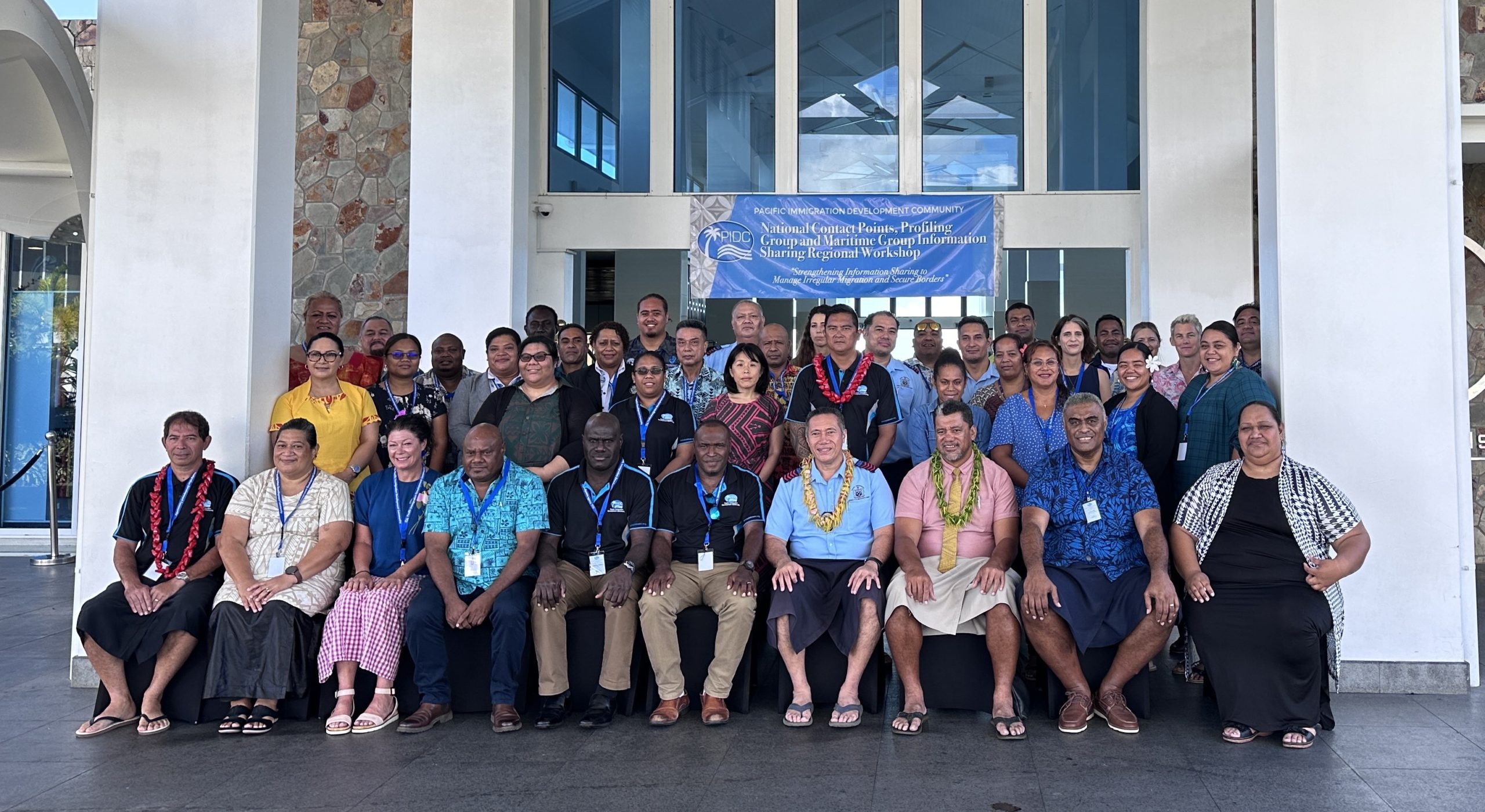The Pacific Immigration Development Community (PIDC) in collaboration with the
United Nations Office on Drugs and Crime Global Maritime Crime Programme
(UNODC GMCP) welcomed, over 40 Immigration officers from across the Pacific to
participate in the PIDC National Contact Points (NCP) Profiling Group and Maritime
Group Information Sharing Regional Workshop, held during March 18 – 22 at the
Taumeasina Island Resort.
The aim of the 5-day workshop was to strengthen information sharing to help
manage irregular migration and secure borders. The event brought together select
senior immigration officers, managers, and directors at the forefront of national and
border security efforts at seaports and airports across the region, to share
experiences and strengthen efforts in sharing targeted information.
Chief Executive Officer of the Ministry of the Prime Minister and Cabinet (MPMC),
Agafili Tomaimanō Shem Leo, delivered the opening remarks and highlighted that
while sharing information has become more frequent and accessible across different
platforms, challenges still remain in areas such as research, analytical capabilities,
verification, accountability, and transparency that hinder the free and timely
exchange of information among law enforcement agencies, as well as the efficient
channelling of humanitarian assistance.
“There are challenges in intelligence networking, irregular people movement,
maritime and cyber security, rapid technological advancement, in conjunction with
profiling and biometrics,” said Agafili. “The opportunity, therefore, to share, receive,
discuss and dialogue through the NCP platform can lead to better coordination,
trusted networking, interoperability, and above all, a secure, safe and prosperous
blue Pacific. I believe the sessions organized for this meeting will help refresh, equip
and bolster our joint efforts to respond to traditional and emerging security threats.”
The PIDC National Contact Points forum was created to foster transparent and
effective communication, nurture genuine partnerships, and strengthen
coordination and collaboration among our Pacific Immigration agencies, to strive for
solidarity and unity on ways to address multifaceted challenges we face in the
immigration spectrum.

